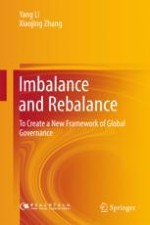
2017 | OriginalPaper | Buchkapitel
1. The Rise and Fall of Monetary Hegemony
verfasst von : Yang Li, Xiaojing Zhang
Erschienen in: Imbalance and Rebalance
Verlag: Springer Singapore
Aktivieren Sie unsere intelligente Suche, um passende Fachinhalte oder Patente zu finden.
Wählen Sie Textabschnitte aus um mit Künstlicher Intelligenz passenden Patente zu finden. powered by
Markieren Sie Textabschnitte, um KI-gestützt weitere passende Inhalte zu finden. powered by